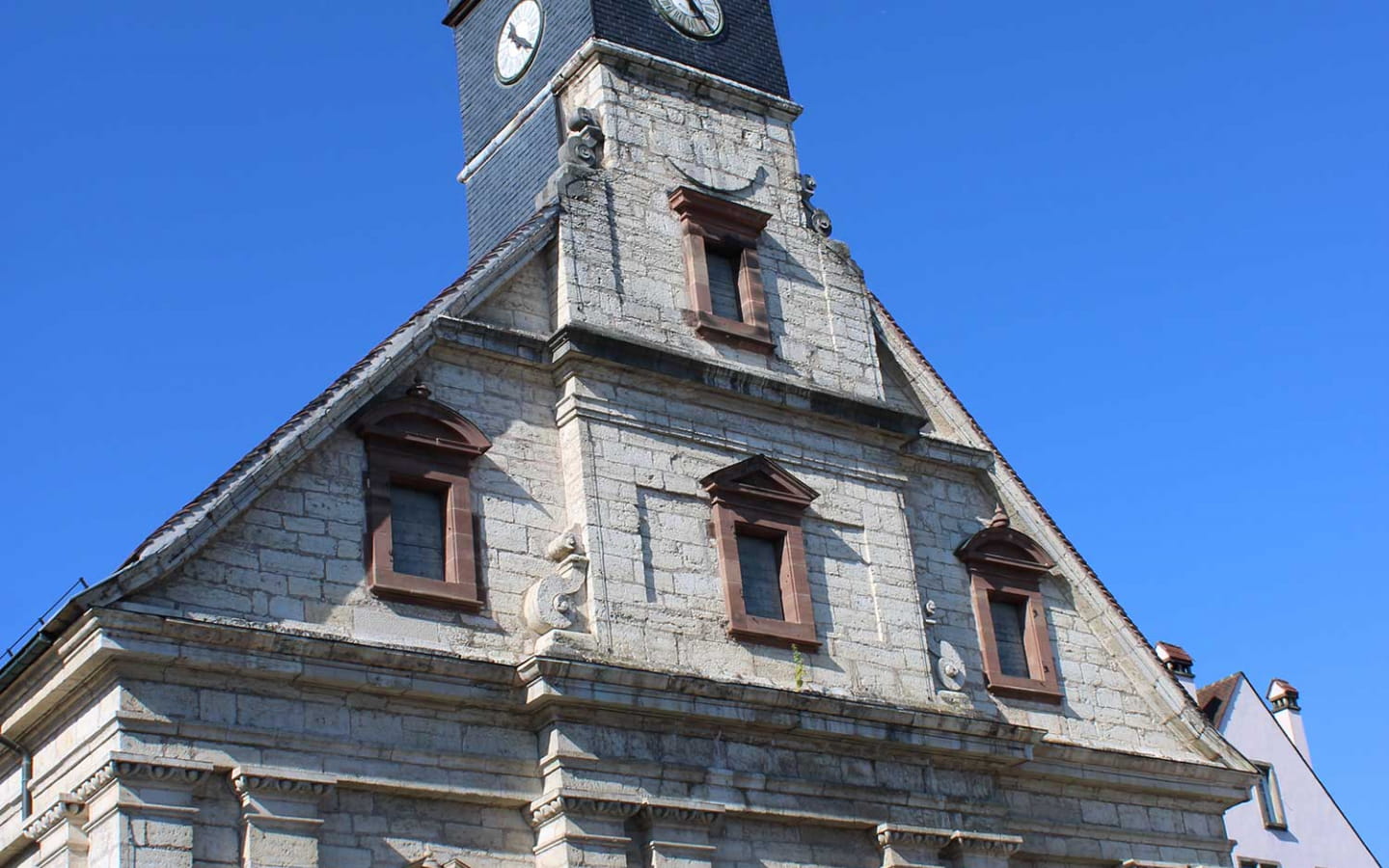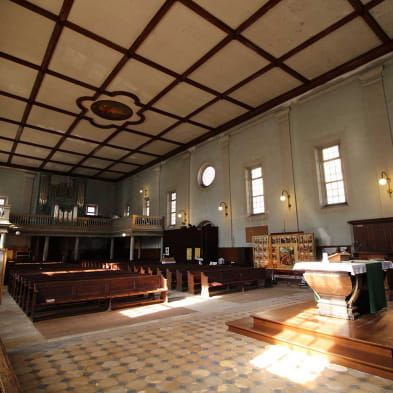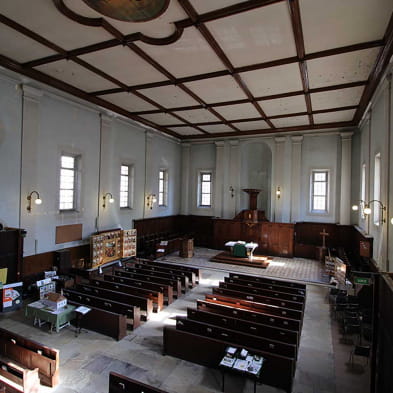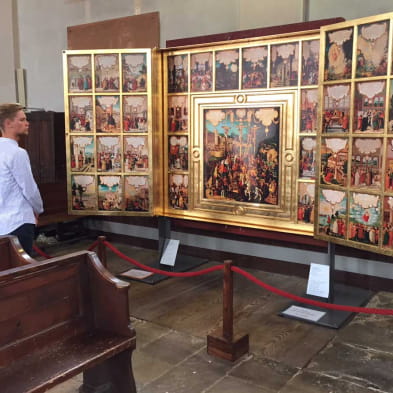
Temple Saint-Martin
Built in 1601 under the direction of the Württemberg architect Heinrich Schickhardt, this building embodies the special character of the Montbéliard region: an island of French-speaking Lutheran Protestantism, governed for more than four centuries by a German dynasty, the Württemberg family.
The construction of the church crowned the religious policy of Prince Frederick, Duke of Württemberg, and marked the triumph of Lutheranism.
In addition to its architectural qualities, its coffered ceiling, organ and spiral staircase are not to be missed.
The reproduction of the Montbéliard Altarpiece (Mömpelgarder Altar) is on display in the Saint-Martin temple.
At the request of George I*, Count of Montbéliard, the painter Heinrich Füllmaurer, from Herrenberg in Württemberg, created a large altarpiece around 1540. Comprising a central section and 6 folding side panels, it is a remarkable collection of 157 painted panels, transforming the altarpiece into a kind of illustrated New Testament.
In the second half of the 16th century, the work was transferred to Stuttgart. In 1617, it is mentioned for the first time in the texts under the name of Mömpelgarder Altar, as coming from Montbéliard, and then kept in the prince's collections.
In 1634, during the troubles of the Thirty Years' War, the altarpiece was taken to Vienna in Austria as war booty and became one of the jewels in the Habsburg painting collection. It is now housed in the Kunsthistorisches Museum in Vienna.
> The temple is currently closed for restoration work. Reopening planned for April 2025. Information available from the Tourist Office.









